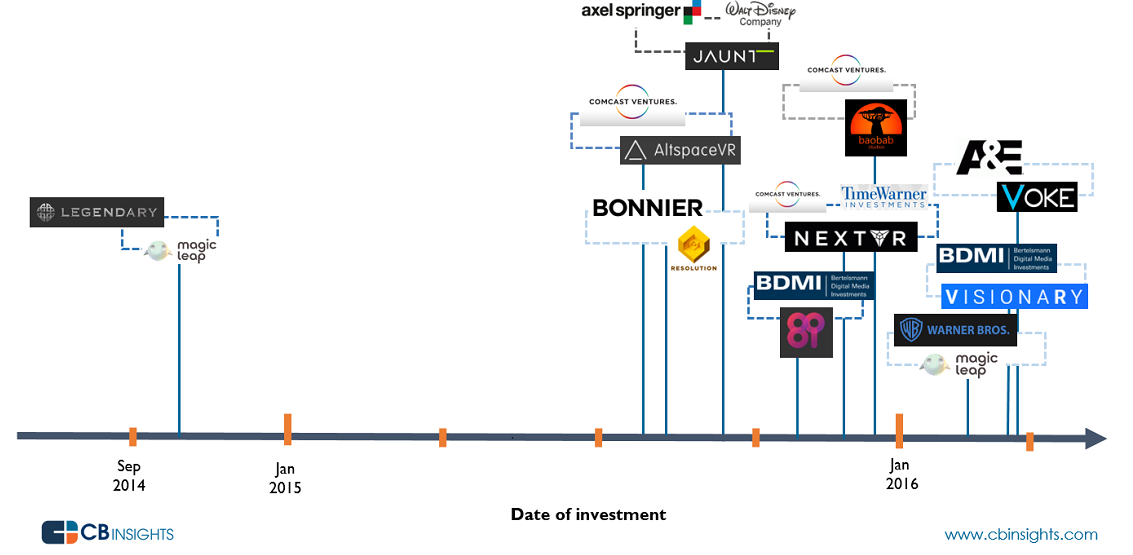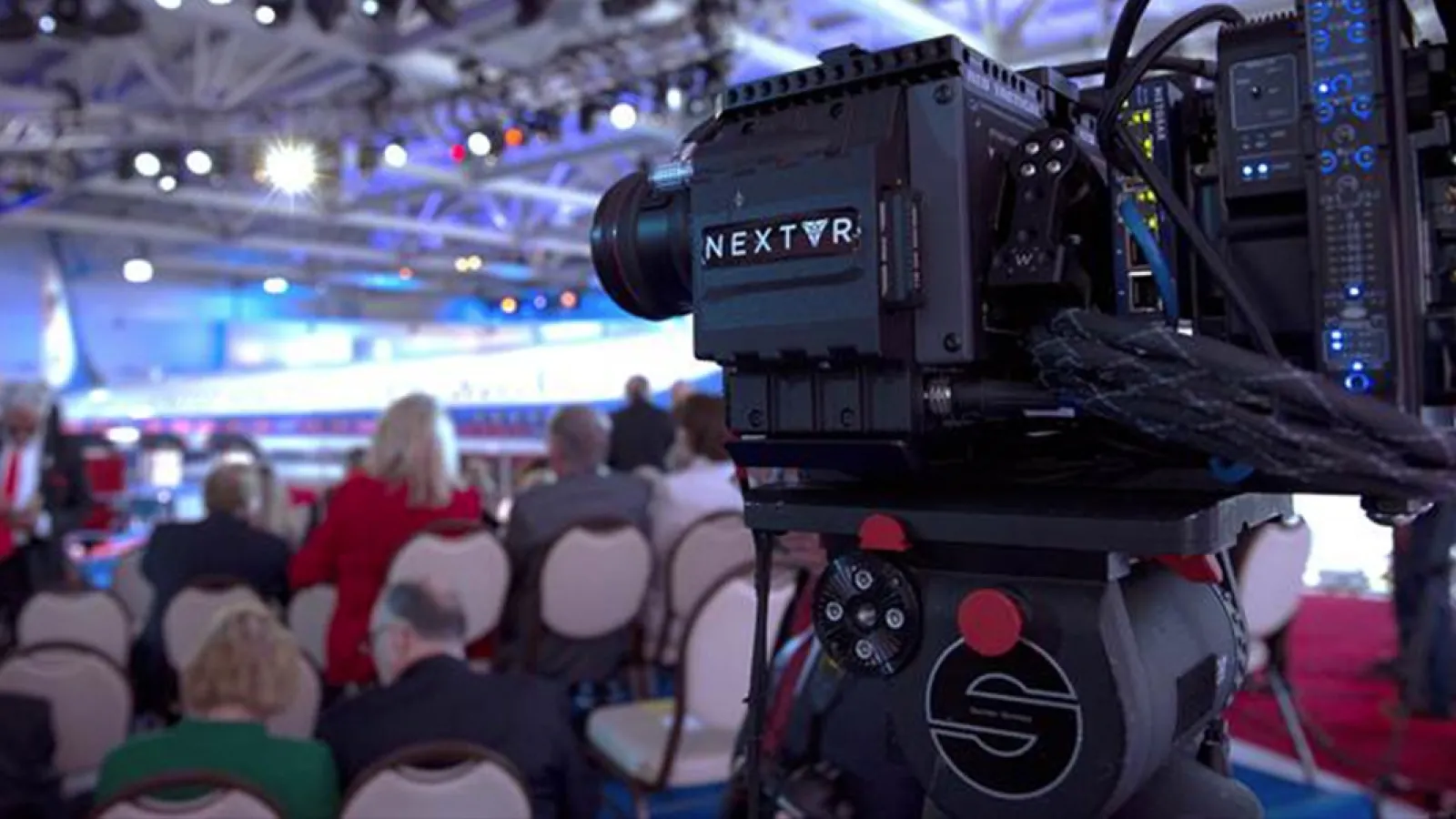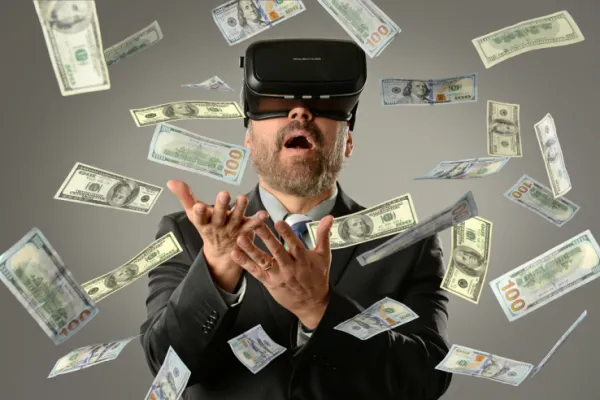2016 will be the first Billion Dollar year for Virtual reality which is set to change the course of history in Technology. Data driven decisions are going to make way for immersive experiences. Last year we saw Google distributed over a Million card boards and ”People are consuming video voraciously on mobile,” and it's time for content creators to take a step into the future with VR supported contents because without content technology will just be in theories and over 300 Million is expected to be invested in content, predicts Deloitte.
What?
Just an year ago Ken Perlin, NYU computer science professor wrote in his Blog I’ve been struggling with the terms “Augmented Reality” and “Virtual Reality”. Science fiction has treated us with visions of Virtual Reality since the days of Matrix and even before in comics. Headsets from Sony, Jaunt and Oculus have taken a huge leap from there but technology in its current form is evolving.
We might find it hard to believe but there has been creations in history before in the mid 20th century where Ivan Sutherland and Bob Sproull had reportedly created what is supposed to be the first virtual reality and augmented reality (AR) head-mounted display system .
There are broadly two categories of VR in for now, high screen resolution ones which have built in display like the forthcoming Oculus, HTC Vive and Sony Playstation VR which cost around $ 350 to $ 500 while the other one is a head mounted setting with a high end smartphone which costs an average of $ 100 or lesser and is yet to evolve.
Why?
Virtual reality is going to have more of an impact than TV or 3D is what is supposed to be believed. It can be hooked onto your smart phones and you get to experience something else all together sitting right where you are. It is more natural and the reality is more relatable. But the question remains "Why in media?".
“At the basic level, virtual reality is a new thing and you always want to give something new to your consumers,” said Sanjay Macwan, Chief Technology Officer of the NBCUniversal Media Labs. “This is more of an intimate experience of the consumer to your content.”.
It is like on of the “I felt I was there” kind of experiences. Media companies are on of those who believe in creating media ecosystem across multiple channels from websites to social media and beyond. And now the media industry can also include VR as a platform for advertisements. Imagine sitting on a hill top with blue mountain coffee on a work break and as you turn your head you can almost feel the freshness and see yourself among the trees.
Where?
The groundwork has been laid for immersive experiences. The New York Times and ABC News plunges into Virtual Reality news gathering, Verizon’s AOL purchase startup RYOT to bring VR news to its Huffington Post property, the VR “movie” . Netflix releases Gear VR app; Hulu and Twitch to follow, and ABC takes viewers to the streets of Damascus with 360 Degree videos in VR. With a lot of things in place, it’s the content that is yet in contemplation now.

How?
The technology is not rocket science but needs to evolve to be able to produce a larger audience. “By far the most important quality is rock-solid tracking, low latency, zero drift,” said Ken Perlin, director of the NYU Media Research Lab. “You have a nine degree of freedom [inertial measurement unit] that’s doing orientation and acceleration that’s telling you where to render the next frame and you use cameras to do anti-drift so that it doesn’t drift over time. And that kind of two-part solution is now, in 2015, coming out in consumer devices. By 2020 that will be something that everyone takes for granted.”
Content & VR
Content can be downloaded and streamed in an app library
Content can be browser based
Content can be viewed over a web page
Content can be downloaded
Content can be stored in clouds
Who?
2012:
Oculus raised more than $2M on kickstarter
2013 :
April - Google launched Google Glass with a little head mounting for AR display costing $1500
May - Oculus started shipping the first development kit, opens Oculus Dev Center
2014 :
March - Facebook buys Oculus for $ 2B
April - “Use of force” VR documentary based on real events, featured at Tribeca Film Festival
June - Google Cardboard announced at Google I/O
October - Magic Leap a VR and AR company gets $542M in series B by Google
December - Samsung Gear Innovator Edition, smart phone powered head mounted VR display using Oculus Technology priced at $199
Rothenberg Ventures announces Virtual Startup Reality Incubator
2015 :
January - Google announced will stop producing Google Glass
Sundance film festival featured VR immersive content by Vrse, Empathetic Media
Microsoft announces AR headset - Holo Lens
April - Htec and Valve announced Vive Partnership
May - “ Clouds over Sidra” a VR film premiered at World Economic Forum and
September - Sony announces VR Headset for PS4
Oculus Connect 2 Dev Conference, announces over 200,000 sign ups for Oculus Dev Center
Jaunt receives $65M in series C by Walt Disney
October - CNN aires 360 degree VR Presidential Debate
November - Gear VR Edition released by Samsung and Oculus
The New York Times launched NYT VR, in collaboration with Google cardboard distributes 1 Million Cardboards to Sunday Subscribers.
2016 : Oculus consumer edition
Once in while some form of technology come in our way which revolutionizes the way we deal with Media, how we communicate, how we advertise, how we present ourselves and how we explore. A major chunk of developments in Media has been technology driven, in fact it is the technology that has crafted our experience and given shape to what has evolved today from handwritten to print media to digital.
Virtual and Augmented Reality are but something that hold extraordinary promise of experience and the time to experiment with it is now. Although it has a lot to be developed from whatever raw form it is in today, it sure will open doors an unforgettable experience. Technology and Media will merge to create this and the challenge lies in front of us to us to make a leap beyond our boundaries.
For further reads visit.



